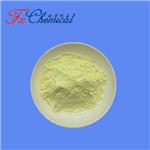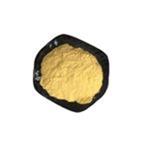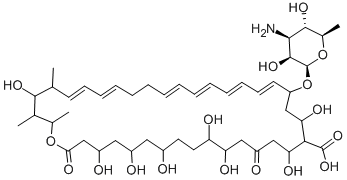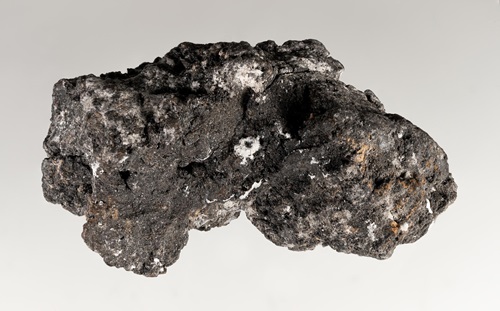What is nystatin used to treat?
Nystatin (A1) [1400-61-9], three biologically active components – Nystatin A1, A2, and A3 – have been described. Nystatin A1 is a natural product isolated from culture filtrates of Streptomyces noursei, Streptomyces aureus, and other Streptomyces species. Like amphtericin B it is a 38-membered macrocyclic lactone, from which it differs solely in the position of the hydroxyl groups and in the absence of a double bond at C23.
Nystatin A1 is a broad-spectrum polyene antimycotic with in vitro activity against pathogenic yeasts, moulds, dermatophytes, and dimophic fungi.

Indications
Nystatin A1 is especially indicated in the therapy of cutaneous and mucocutaneous infections caused by pathogenic yeasts.
Side Effects
When applied topically, nystatin A1 is highly effective and well tolerated in the treatment of cutaneous and mucocutaneous candidoses. Local irritations and allergic reactions may occur in rare cases and are mostly due to the galenic formulation. If topically applicated in the gastrointestinal tract, nausea, vomiting, and diarrhoea are rarely observed.
You may like
See also
Lastest Price from Nystatin manufacturers

US $0.00/KG2025-04-21
- CAS:
- 1400-61-9
- Min. Order:
- 1KG
- Purity:
- 98%min
- Supply Ability:
- 30tons/month

US $6.00/kg2025-04-21
- CAS:
- 1400-61-9
- Min. Order:
- 1kg
- Purity:
- 99%
- Supply Ability:
- 2000KG/Month


